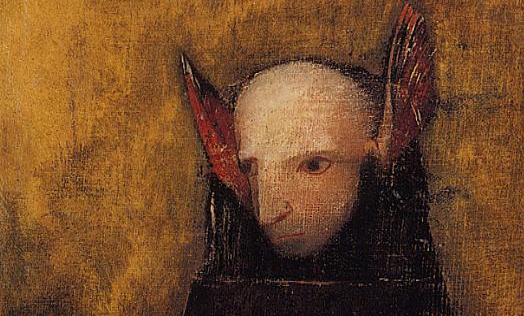It’s said that sharks will die if they don’t keep swimming. There’s a strange lesson here for our own age.
Joseph Ratzinger (no, I’m not comparing him to that shark) entered Vatican II with great optimism, yet grew worried in the following years concerning the many radical and permissive interpretations given to the Council. In 1971 he wrote an article called “Why I Am Still in the Church” that details the greatest threats facing the Church in our era:
Today an illusion is dangled before us: that a man can find himself without first conquering himself, without the patience of self-denial and labor of self-control; that there is no need to endure the discomfort of upholding tradition, or to continue suffering the tension between the ideal and the actual in our nature. The presentation of this illusion constitutes the real crisis of our times. A man who has been relieved of all tribulation and led off into a never-never land has lost what makes him what he is; he has lost himself.
In our age where crises abound in every daily headline, these words are sobering. The real crisis would be to avoid real crisis, within ourselves.
Another author who makes the exact same point (big surprise) is John Paul II. In 1974, as Archbishop of Kraków, he wrote the poem “Thoughts on My Homeland,” originally published as “Myśląc Ojczyzna” under the pseudonym Stanisław Andrzej Gruda. I don’t harbor a secret love for translating Polish poetry, but I discovered the work through Placido Domingo’s sung version in Italian, “La Liberta.”
Is it unknown, this weakness we have experienced?
Was it in our fathers, that we inherit it in ourselves?
Freedom must constantly be gained,
it can not simply be possessed.
It comes like a gift, persists through struggle…
Freedom can only be called freedom
When we still pay for it, forever newly obtained,
A payment required in all moments of history,
And of us too in our own era…
We who have now found the golden freedom of slavery.
True freedom is constantly being discovered as a gift
Which comes only through struggle,
Which is still not enough.
To be free without struggle, to accept everything “as is,” hasn’t this become perhaps the major tenet of progressive society? But there’s a subtlety, of course. Modern man is still very much ready to struggle against forces and foes outside of himself. It’s the space within that we now think deserves a blessing of total acceptance.
I love the simplicity with which the above popes respond: But we’re not ok. We need to struggle to grow, and it has to be the right kind of struggle. My heart. And Christ’s heart. That’s it.
There’s a romantic part of me which still wishes we could avoid this arduous prospect, but I have to call my own bluff. Struggle is a part of life.
The strongest evidence is our own experience. I think of a child who has told a lie and now stands trial before his interrogating mother, fearful of her questions, but still surprised at why he even lied in the first place. It just “came out” of him. Is that who he really is now, a liar? Will he do it again next time? So we all find ourselves, and so we continue to be as we grow older…
Perspective matters as well. I think of Shakespeare’s insomniac Henry V, who paces the camp on the night before battle, musing that not even the king “can sleep so soundly as the wretched slave / who with a body fill’d and vacant mind / all night sleeps in Elysium” (Act IV, Scene 1). But Henry doesn’t actually know the slave. Only distance allows us the illusion of others’ perfect peace. From the mill worker to the country club tennis player, the curbside beggar to the king of England, everyone struggles, if we only knew them well enough to see that.
We’re better when we accept that and when we deal with it. May God give us the grace to begin again each day, to grow more in real freedom.
✠
Image: Odilon Redon, The Monster, detail







